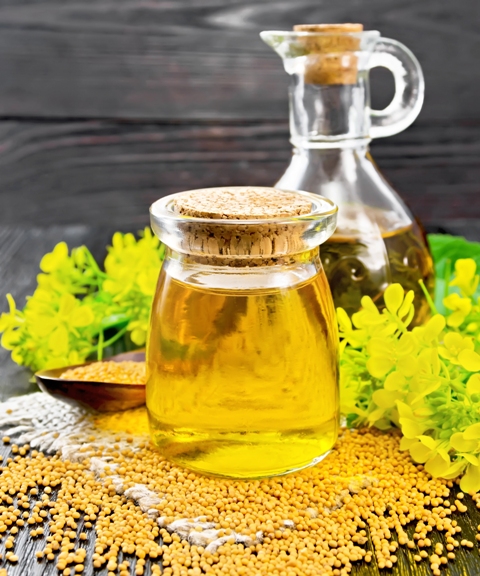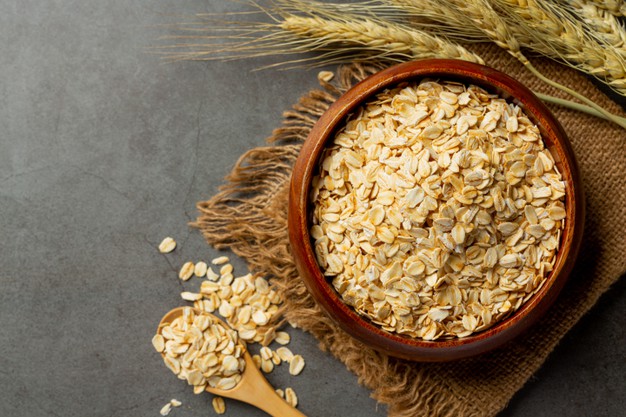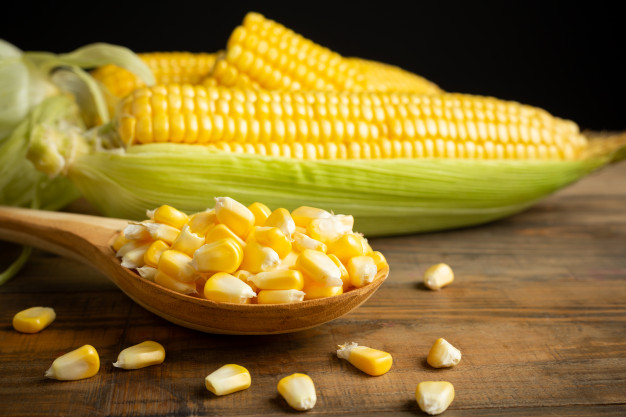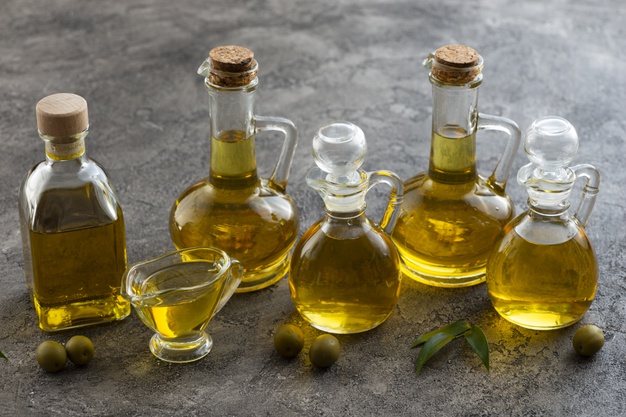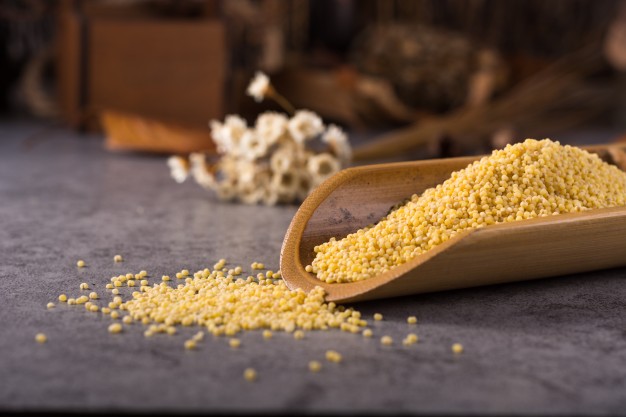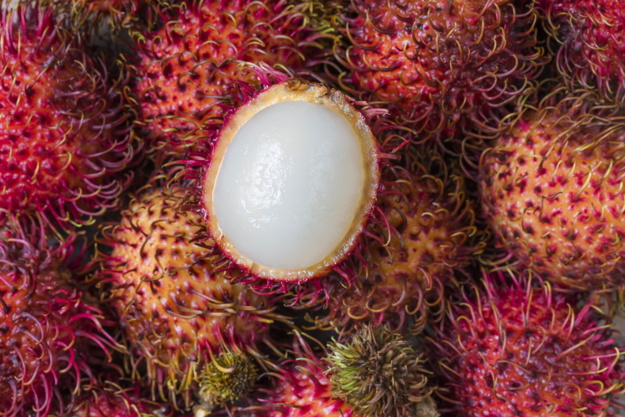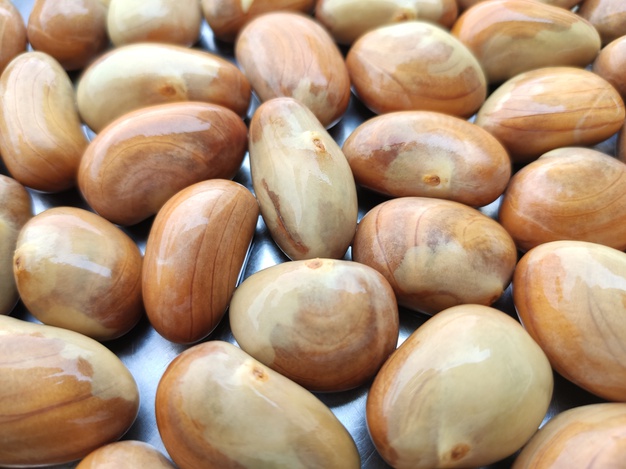Oil, which is extracted from mustard seed, is generally termed as mustard oil. It has been traditionally used for various medicinal and culinary purposes.
Some important information regarding mustard oil
- It is considered as very common ingredient in Indian cuisine
- It is liquid in room temperature
- It has pungent aroma
- It has strong flavor too
- It has high smoke point. Smoke point is recognized as a temperature at which fat starts to break and produces smoke. As mustard oil has high smoke point thus it can be easily utilized for high heat cooking methods such as baking, frying, roasting, grilling etc
Nutritional profile
It is rich in monounsaturated fatty acids and also contains several fat soluble vitamins and trace elements. It also contains phytonutrients that exert various nutraceutical activities.
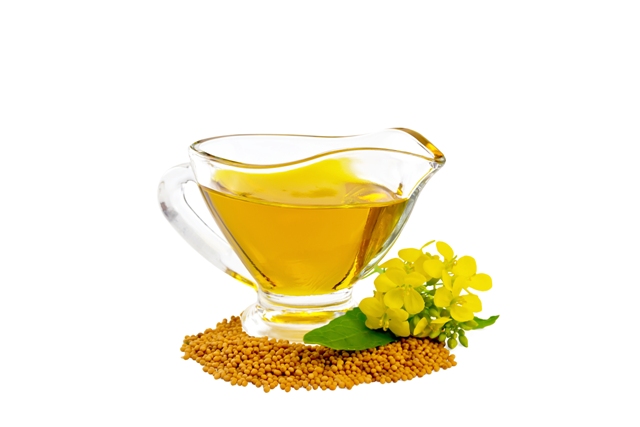
Biological activity
Antioxidant activity

- It exerts strong antioxidant activity, which is responsible for decreasing the concentration of free radicals within body and protects the body from the harmful consequences of free radical induced oxidative damages
- It plays vital role in preventing lipid peroxidation
- It also helps in decreasing the risk of developing chronic diseases by preventing oxidative stress
Anti-inflammatory activity
- It contains several components that exhibit anti-inflammatory activities and prevent inflammation by decreasing the concentration of inflammatory mediators in body
- Onega 3 fatty acid is another important component of mustard oil that helps in regulating inflammatory process thus helps in preventing inflammation
- It has been traditionally used topically for relieving the symptoms of arthritis as it plays imperative role in preventing joint swelling
Anti-carcinogenic activity
- Allyl isothiocyanate is an important component extracted from mustard oil plays significant role in lowering the prevalence of carcinoma as it has strong anti-carcinogenic activity
- It helps to hinder the growth of cancerous cells in body
- It helps to prevent metastasis as well
- It is very effective for decreasing the prevalence of bladder cancer and colon cancer
Antimicrobial activity
- Its antimicrobial activity is accountable for decreasing the prevalence of infectious diseases in many folds
- It can hinder the growth of bacteria, virus as well as fungus within host

Health benefits
Role on digestive health
- It plays significant role in stimulating the secretion of digestive juice as a result helps in digestion
- It is also associated with decreasing the prevalence of gastrointestinal infectious diseases as it exerts antimicrobial activities, which are responsible for hindering the growth of harmful microbes within gastrointestinal tract. As a result it lowers the prevalence of diarrhoea, stomach cramping, abdominal distress and bloating
- It also helps to protect the gastrointestinal tract from oxidative and inflammatory damages hence plays vital role in decreasing the susceptibility of developing inflammatory bowel disease, ulcers and irritable bowel syndrome
Role on circulation
- It has seen that using of mustard oil for massaging the body significantly improves blood circulation
- It also enhances the supply of oxygen as well as nutrients to the body through blood, which ultimately helps every organ to perform efficiently as a result promotes wellbeing
Role on respiratory health
- It has been traditionally used as an imperative therapeutic substance for respiratory health
- It acts as an effective preventive measure for asthma. It has seen that during asthma attack, massaging the chest with mustard oil is very effective for reducing the complication as it is closely associated with increasing air flow to the lungs, which subsequently helps in easy breathing
- It helps to improve the symptoms of sinusitis as well. Consumption of one teaspoon of mustard oil along with honey or sugar is extremely beneficial
- It also acts as an important decongestant, which plays vital role in clearing congestion from the respiratory tract thus it is widely used as an important remedial action for cough and cold
- Mustard oil steam treatment is also considered as an important remedial action for reducing phlegm as it is linked with warming up the respiratory system
- It can be applied on chest before sleeping or it can be also rubbed on feet for improving the symptoms of normal cold and cough

Role on skin
- It has various topical uses. It contains various nutrients that help to nourish the skin
- It has been traditionally used in India for massaging newborn in order to strengthen their skin barrier functionality
- Vitamin E component of mustard oil plays imperative role in promoting skin health
- Its antioxidant activity is also responsible for decreasing the prevalence of dermal disorders as it helps to protect the skin from oxidative damages and prevents ageing as well
- It acts as sunscreen too and when it is applied on skin it significantly decreases the prevalence of fine lines and wrinkles
- It helps to improve skin glow as well
- Its antimicrobial activity is closely related with treating skin infections and rashes naturally
- While using mustard oil topically it should be kept in mind that too much oil may cause irritation thus it is better to use it in moderation

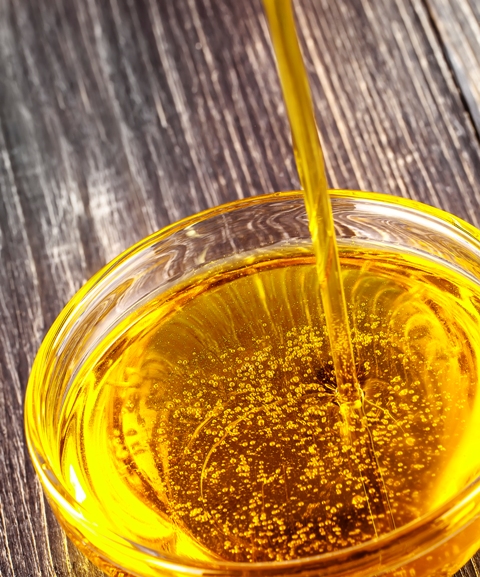
Role on hair
- It plays significant role in promoting hair growth
- It helps to make the hair strong
- It helps to improve hair shine
- Its antibacterial activity is extremely helpful for preventing scalp infections
- It helps to prevent hair fall as well
Therapeutic uses
Mustard oil has been traditionally used for various therapeutic purposes, which include –
- It is widely used as an effective therapeutic substance for cardiac health. It is significantly rich in monounsaturated fatty acids (MUFA), which play significant role in promoting cardiac health and functionality
- Its MUFA contents are also responsible for decreasing the concentration of LDL that ultimately helps to reduce the risk of developing atherosclerosis and coronary artery diseases by preventing plaque formation within blood vessels
- It helps to decrease the prevalence of heart attack and stroke as well
- Cracked heel is a very common problem experienced by a range of people especially during winter and it can be easily prevented by applying mustard oil to the cracked heel
- It is very effective for preventing brittle nails as well. Applying mustard oil to the nail is responsible for lubricating the nail bed and also helps to provide proper nourishment to the nail
- It is also associated with relieving muscle tension
- It acts as a natural cleanser. It has seen that it is related with activating sweat glands thus plays significant role in throwing out toxins from the body through sweat
- It plays imperative role in decreasing pain. Its allyl isothiocyanate component and alpha-linolenic acid components have great effects on the pain receptors of body and play significant role in reducing pain as well as swelling

Risk factors
Erucic acid is a component found in mustard oil, which has several adverse effects. Excessive consumption of mustard oil or its too much topical application is responsible for increasing the level of erucic acid in body, which ultimately increases the risk of accumulating triglyceride within cardiac tissue, results in developing fibriotic lesions. It also increases the prevalence of lung cancer. Mustard oil was banned for edible consumption in Canada, USA and EU due to its erucic acid component. Thus, it is better to avoid its excessive uses for avoiding the accumulation of erucic acid in body, whereas using mustard oil in moderation does not provide any harmful effects on health.
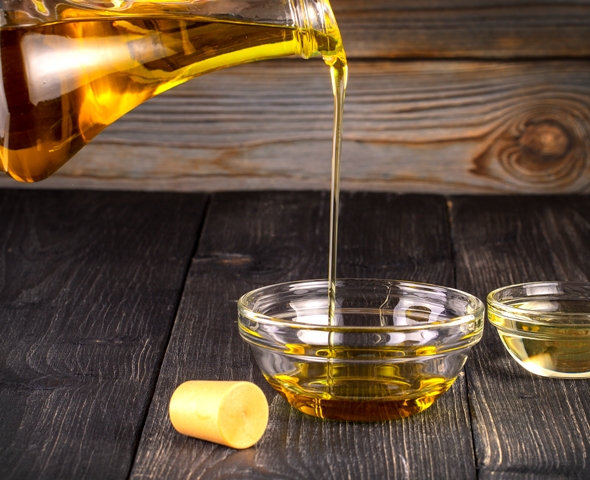

Source:
Chhajed, R., Thomas, T., Swaminathan, S., Kurpad, A.V. and Mani, I., 2020. Association between mustard oil consumption and BMI in India. Public Health Nutrition, pp.1-9.
Darmstadt, G.L. and Saha, S.K., 2003. Neonatal oil massage. Indian pediatrics, 40(11), pp.1098-1098.
Dutt, N., MUSTARD OIL, THE OLIVE OIL OF INDIA.
Kaur, R., Sharma, A.K., Rani, R., Mawlong, I. and Rai, P.K., 2019. Medicinal qualities of mustard oil and its role in human health against chronic diseases: a review. Asian Journal of Dairy and Food Research, 38(2), pp.98-104.
Mishra, S. and Manchanda, S.C., 2012. Cooking oils for heart health. J Pre Cardio, 1(3), pp.123-131.
Sahu, M., Devi, S., Mishra, P. and Gupta, E., 2020. Mustard Is a Miracle Seed to Human Health. In Ethnopharmacological Investigation of Indian Spices (pp. 154-162). IGI Global.
